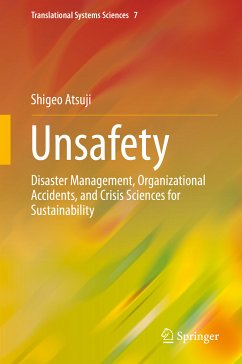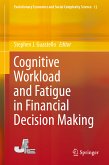In Unsafety, the author focuses on the kinds of unnatural disasters and organizational accidents that arise as repercussions of natural hazards. Japan serves as an example, where earthquakes, tsunamis, and typhoons are common, with the Fukushima nuclear disaster as an outstanding case of this link between natural disasters and organizational accidents. Natural and human-made disasters happen worldwide and cause misery through loss of life; destruction of livelihoods as in agriculture, fisheries, and the manufacturing industry; and interruption of urban life. Unsafety from a disaster in one place increases uncertainty elsewhere, presenting urgent issues in all nations for individuals, organizations, regions, and the state.
The author explains that one factor in the Fukushima catastrophe, which followed in the wake of the earthquake and tsunami in 2011, was the latent deterioration and aging of systems at all levels from the physical to the social, leading through a chain reaction to unsought and unforeseen consequences. Here, the aging of the nuclear reactor system, the breakdown of safety management, and inappropriate instructions from the regulatory authorities combined to create the three-fold disaster, in which technological, organizational, and governmental dysfunction have been diagnosed as reflecting a "systems pathology" infecting all levels.
Dieser Download kann aus rechtlichen Gründen nur mit Rechnungsadresse in A, B, BG, CY, CZ, D, DK, EW, E, FIN, F, GR, HR, H, IRL, I, LT, L, LR, M, NL, PL, P, R, S, SLO, SK ausgeliefert werden.









